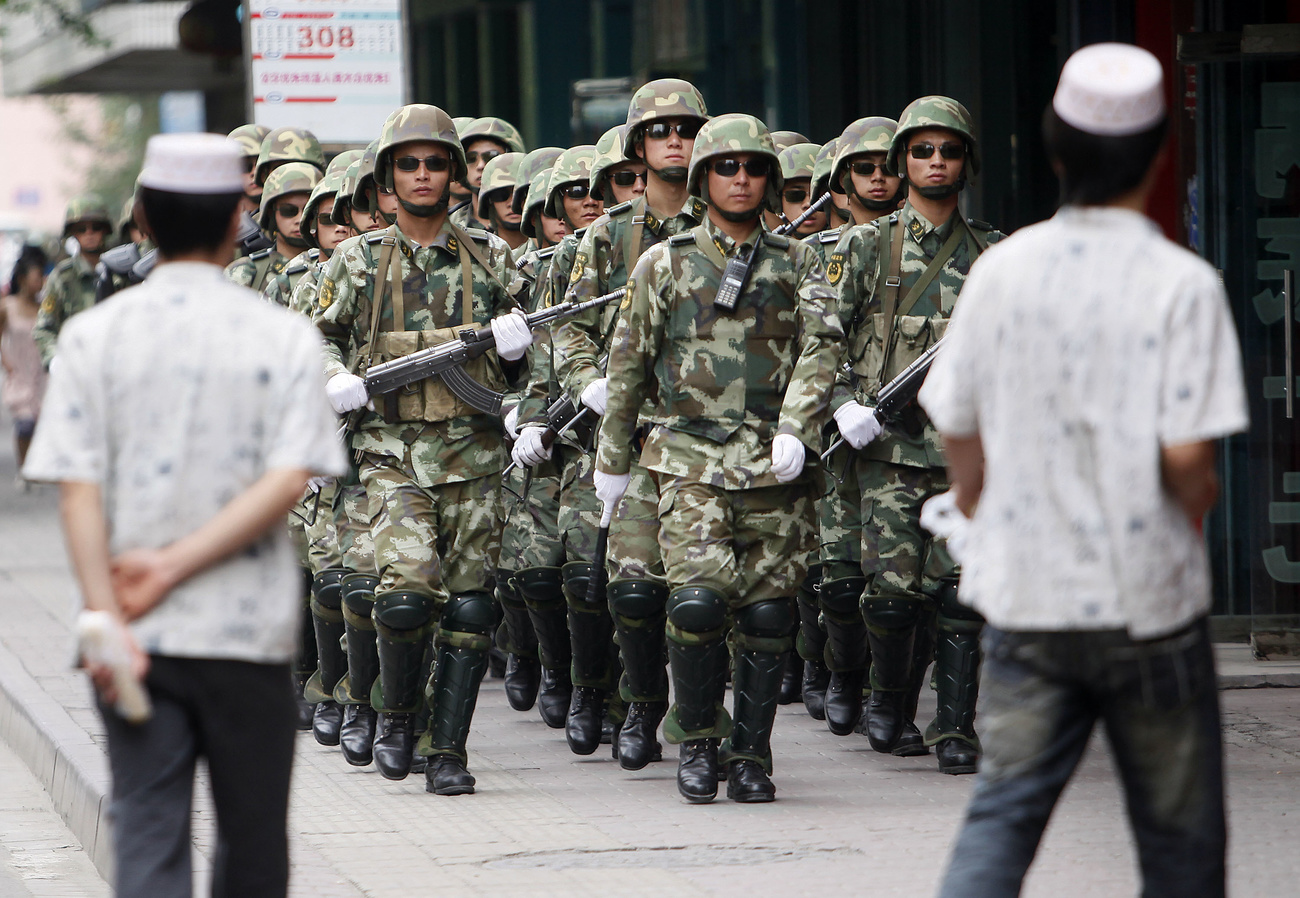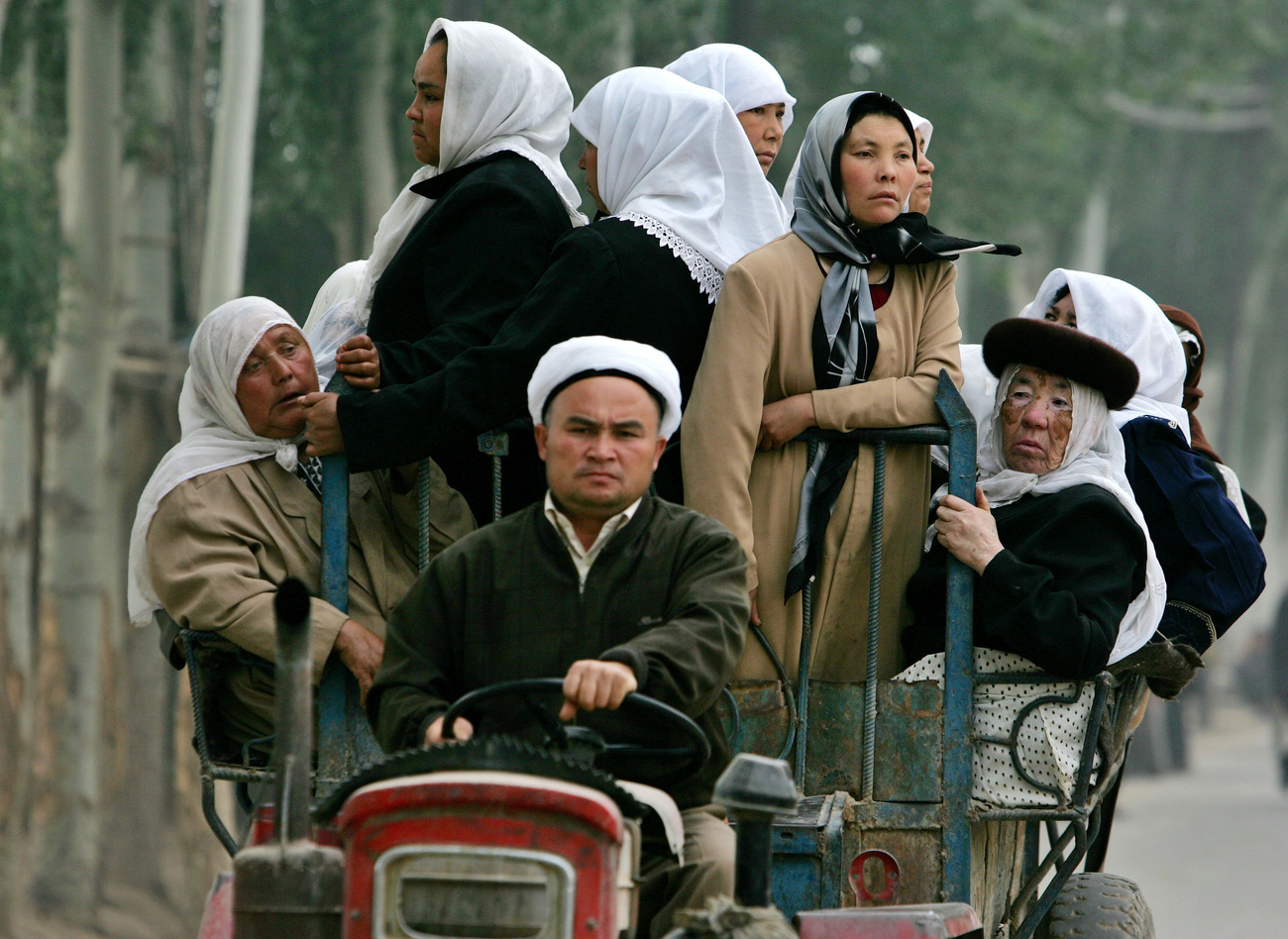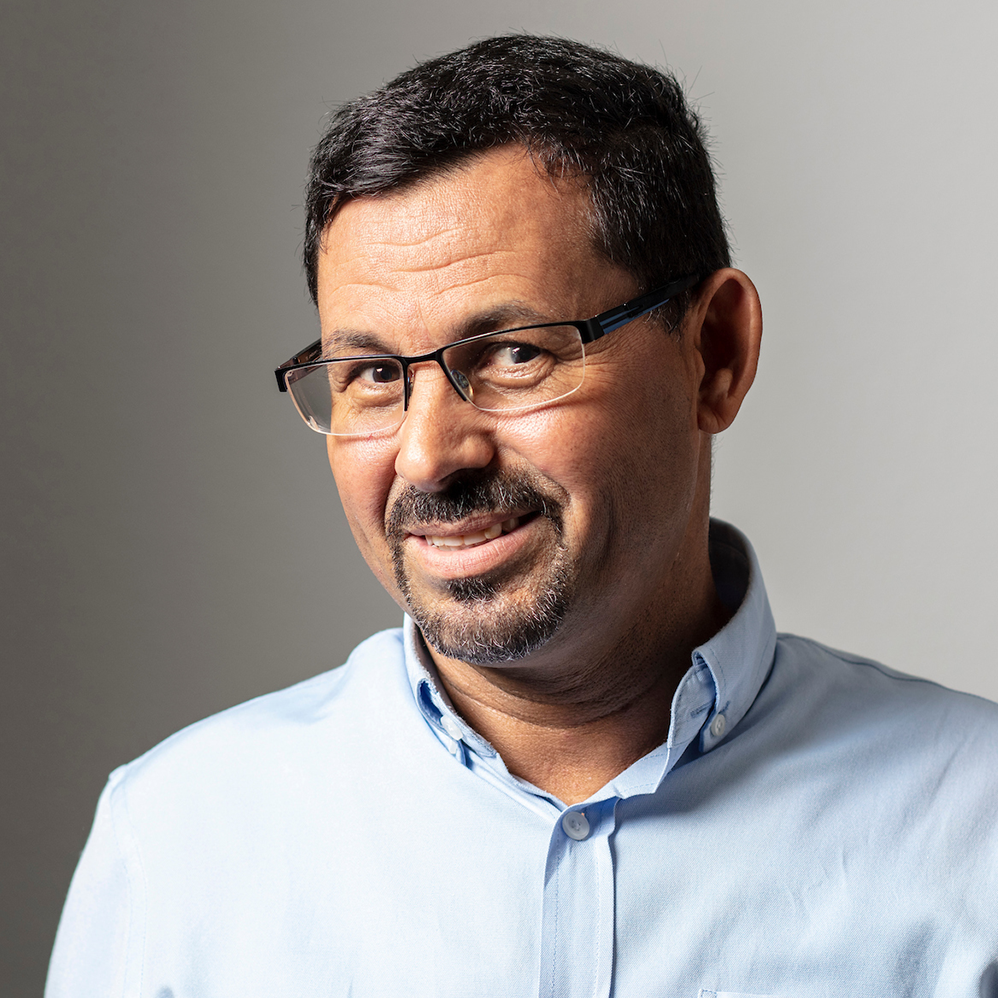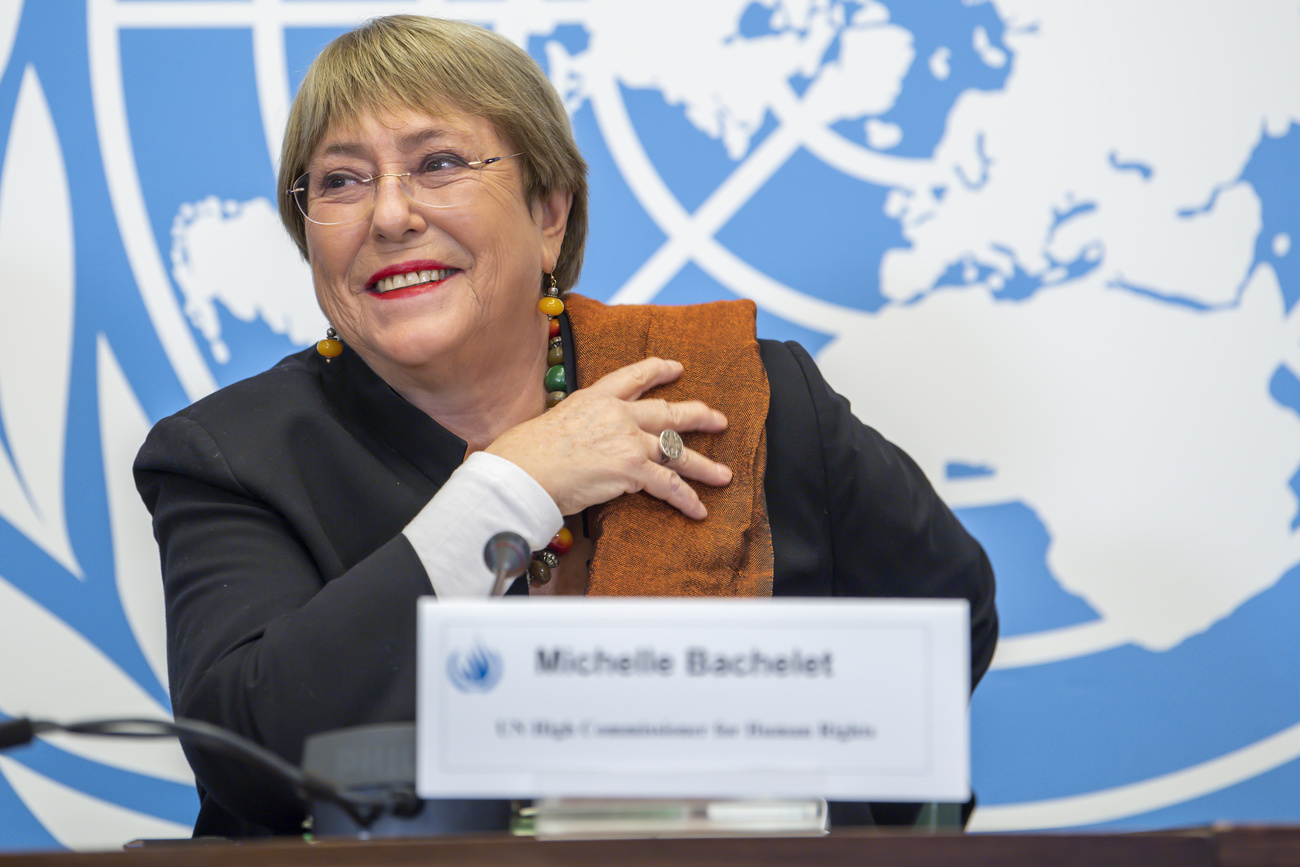Why Arab and African countries stand with China at the UN

Arab and African countries continue to stand firm behind China in key votes at the United Nations. Reasons for support go beyond siding with an authoritarian regime; they also show China’s economic clout in Africa.
When the UN High Commissioner for Human Rights, Michelle Bachelet, published her long-awaited report condemning China’s repressive policies in Xinjiang province, countries such as the United States and the United Kingdom were quick to react expressing “concerns”. The United States has labelled the repression against the Uyghur minority “a genocide”.
The report, published minutes before Bachelet left office on August 30, found China’s “arbitrary and discriminatory detention” of Uyghurs and other Muslims in the western Chinese region may constitute crimes against humanity.
Muslim countries in Asia and Africa remained silent. Nearly a month after the report was published, 70 countries led by Pakistan made a joint statement at the Council calling on countries to stop interfering in China’s internal affairs. Fourteen Arab countries, including Algeria, Morocco, Saudi Arabia, Egypt, Tunisia and Bahrain were on the list.
Last Thursday a vote at the Council to adopt a resolution committing to a debate at the next session in February failed. All African countries apart from three voted no. Benin and the Gambia abstained. Somalia voted yes. The result came after intense behind-the-scenes lobbying by China.
“China is targeted this time, and any other developing countries could be targeted anytime in the future,” the Chinese mission said after the vote.
“Predominantly Muslim countries choose to abstain from condemning China, or bluntly support it through individual or collective statements, delivered by countries’ heads or representatives in international forums or during their mutual meetings with China,” says Reem Abdel Majid, an Egyptian researcher on human security and environmental peace, and author of a study on China and Uyghur Muslims.
This consistency conflicts with other statements at the UN issued by Muslim and African countries. As an example, member states of the Organisation of Islamic Cooperation (OIC) was quick to defend the Rohingya Muslim minority from the Burmese military’s discriminatory policies.
Reasons for support of China go beyond internal concerns of wanting to maintain stability and preferring to side with an authoritarian regime. They also reflect China’s economic and soft power push into the Global South, which has led many countries to depend financially on what is now the world’s second-largest economy.

Fear of separatism
One of the reasons behind this support, analysts say, lies in the solidarity between authoritarian governments on human rights and humanitarian issues.
On such issues, support for China from African and Muslim countries at the UN is quasi-systematic. As another example, 25 African countries voted against a motion condemning China’s national security law in Hong Kong at the Human Rights Council in June 2020. Hong Kong’s political opposition faced harsh penalties after the law was implemented, which put an end to the territory’s autonomy.
“Most of these Arab and African countries are governed by corrupt regimes; their legitimacy is questionable and they are incapable of achieving the well-being of their people. They derive their strength from their external loyalties rather than from the population,” Yemeni writer Ahmed Al-Ahmadi tells SWI swissinfo.ch.
Support is also rooted in “fears of separatist groups gaining popularity in their home countries”, explains Hanan Kamal Abu Sakin, an assistant professor of political science at Cairo’s National Centre for Social and Criminal Research in Cairo.
He argues that southern Shiite communities are posing a strategic threat to Saudi Arabia’s stability and Bahrain’s unity, and that Iraq, Syria, Iran and Turkey are all at risk if Kurdish demands for independence come to fruition. Meanwhile, western Saharan settlers in Morocco are requesting their own country.
“Pro-China positions are justified by looking at human rights as an internal affair and should not be meddled with,” he says.
The narrative that measures in Xinjiang are needed to fight terrorists is one that the Chinese government is keen to push internationally. It argues that the province is now stable and thriving economically.
Strengthening economic partnerships
But beyond similarities in leadership, China’s gradual transformation into a strategic trading partner and investor in major and critical projects in the Arab and African regions is perhaps the most important factor in shaping these alliances. And it is that argument that African states often put forward when justifying their support to China.
For the 12th year in a row, China has been Africa’s top trading partner, according to the annual report on China-African economic and trade relations issued in September 2021External link. Bilateral trade between China and Africa reached $187 billion (CHF184 billion) in 2020, despite the economic slowdown imposed by the Covid-19 pandemic and the lockdown measures that ensued.
In the first seven months of 2021, bilateral trade between China and Africa grew by 40.5% to $139 billion, according to the same report.
Most of China’s investment in Africa has gone into the service sector, with new areas like scientific research, technology, transportation and storage seeing a twofold increase in investment from China, particularly in South Africa and Ethiopia. This has created jobs and fuelled innovation.
China has signed agreements with 18 Arab countries as part of the “Belt and Road Initiative”. This aims to connect Asia and Europe to a wide range of land and sea infrastructure projects, many of which will be built in the Middle East.
As a sign of the tight economic ties, China and the Arab world will hold their first China-Arab summit in Saudi Arabia this year, and the Ministerial Conference of the China-Arab States Cooperation Forum will hold its tenth session in China.
This dependence on China often comes at a cost, as the recent intense lobbying for African and Arab countries not to sign the Western-led initiative to discuss the treatment of Uyghurs has shown.
But analysts say African countries are weary of being overdependent on China. As the world divides itself into Western democracies versus the rest of the world, support for China in many countries is questioned. The war in Ukraine is increasingly pushing countries to choose a side; a stance some Arab and African countries are not willing to take, especially as China has implicitly said it will scale back its overseas investment drive following risks of default on millions of dollars-worth of debt issued by Chinese banks.
China is now Africa’s biggest bilateral creditor, with some countries, such as Kenya, owing China 72% of its bilateral debt. This has prompted domestic debates about the risk of the country falling into debt-trap diplomacy.
“Although Arab and African states’ support for China on the human rights issue is growing, their cooperation with China on other issues is still limited by certain factors,” says researcher Reem Abdel Majid.
Arab and African countries refused to take sides in the ongoing trade war between the US and China. They also failed to publicly support China’s narrative on the origin of the Sars-Cov-2 virus and on topics such as cybersecurity. They have refrained from any kind of military and security alliance.
“Alliances with China will depend on internal variables that these countries are likely to face, such as the growth of terrorist groups, separatist movements, and political instability. Due to the difficulty of resolving these thorny issues in the short term, support for China is expected to continue for a long time,” Reem Abdel Majid adds.
Edited by Virginie Mangin

More
Bachelet should fix disastrous China visit by standing with victims

In compliance with the JTI standards
More: SWI swissinfo.ch certified by the Journalism Trust Initiative














You can find an overview of ongoing debates with our journalists here . Please join us!
If you want to start a conversation about a topic raised in this article or want to report factual errors, email us at english@swissinfo.ch.